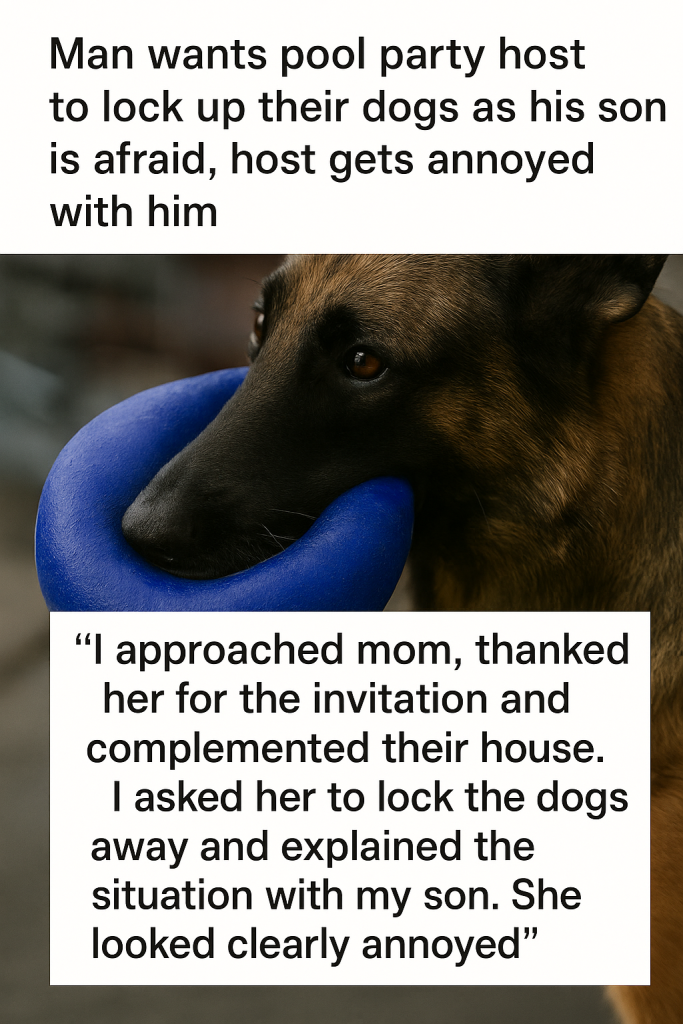A recent social media post has sparked conversations about pool party etiquette and managing fears, after a man asked the host of a backyard gathering to lock up their dogs because his son was afraid of them. The incident highlights the challenges hosts face when balancing hospitality with individual guests’ concerns.
According to details shared online, a family was invited to a pool party where the host owns two large dogs known for their playful and energetic behavior. The man, attending with his young son, reportedly approached the host before the event. He thanked the host for the invitation but then expressed a sensitive request: to have the dogs secured during the party because his son, who suffers from a fear of dogs, would be uncomfortable and possibly distressed by their presence.
While some might consider the request reasonable, what followed was an interaction laden with tension. The host reacted with visible annoyance, stating that the dogs were part of the household and played a major role in the family’s social life. The host felt it was unfair to limit their pets’ freedom during a casual gathering at their own home. Ultimately, the dogs remained free, and the party went on with mixed feelings between the guests.
This disagreement brings up an often-overlooked issue in social settings: how to accommodate fears and safety while respecting the rights of pet owners. Experts in social dynamics and pet behavior weigh in that communication and compromise are key. “If a guest has a genuine fear, hosts should at least consider creating safe zones or minimizing direct contact,” says a behavioral specialist. “Similarly, guests should approach such situations with empathy, understanding the host’s perspective.”
Online reactions to the story have been divided. Many sympathized with the father, emphasizing that children’s anxieties and phobias should be acknowledged and accommodated in social gatherings. Others felt the host’s frustration was justified, noting that the party took place on the host’s property, where dogs are part of daily life and it might be unreasonable to ask for complete restraint.
Pool parties frequently feature dogs, especially in warmer months when families enjoy outdoor activities. Balancing fun, safety, and personal comfort can be difficult. This incident could serve as a reminder to future hosts to clarify in invitations whether pets will be present and to discuss potential concerns ahead of time. Likewise, guests might find it helpful to communicate their fears early and propose solutions that work for everyone, such as designated pet-free zones or bringing comforting items for anxious children.
For now, the family attended the party but kept their distance from the dogs, while the host maintained that their pets were an integral part of the household atmosphere. The incident, captured in screenshots and shared widely on social media, continues to spark debate about empathy, boundaries, and the complexities of social interactions in pet-friendly environments.



